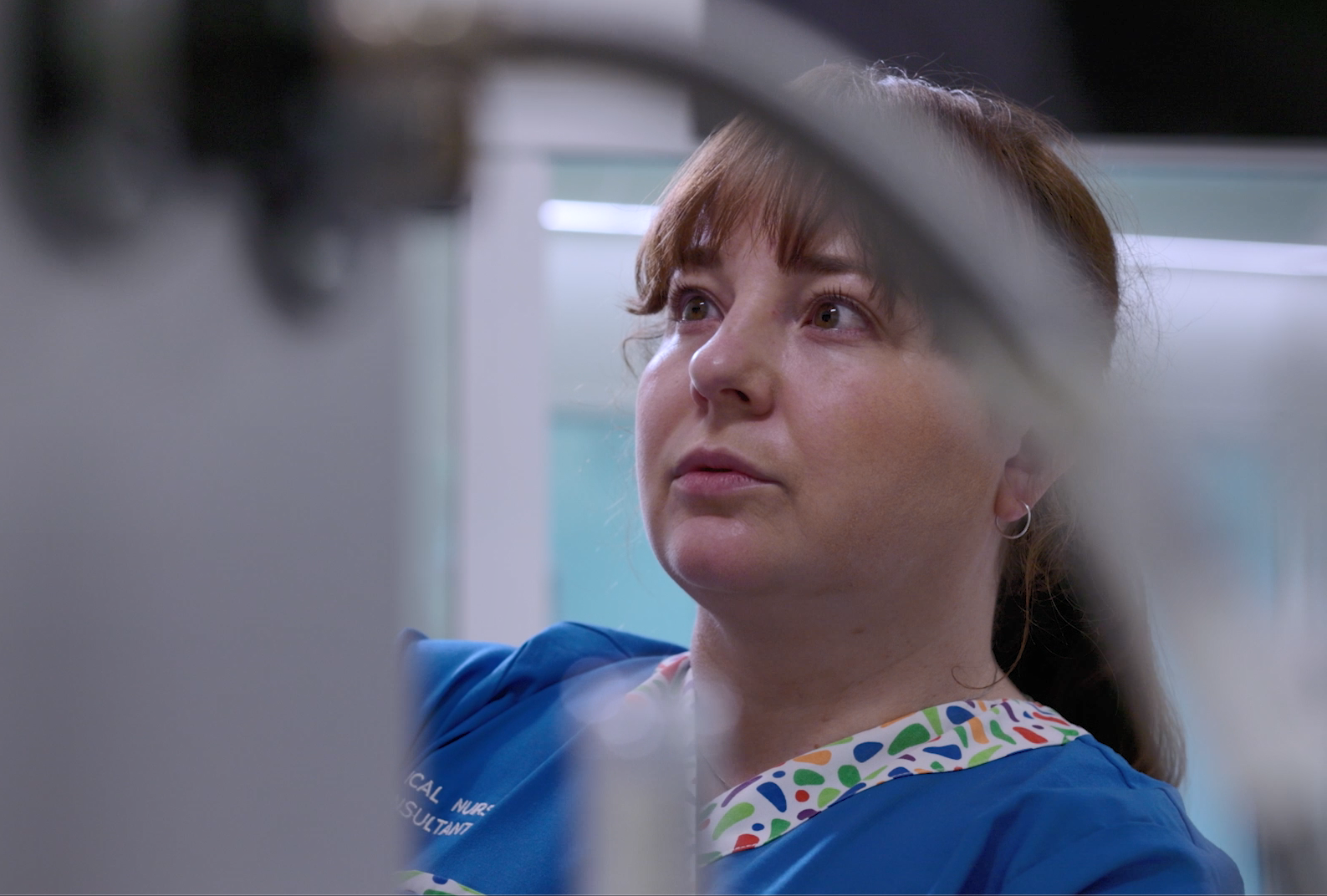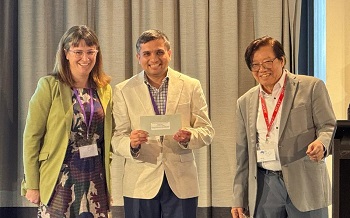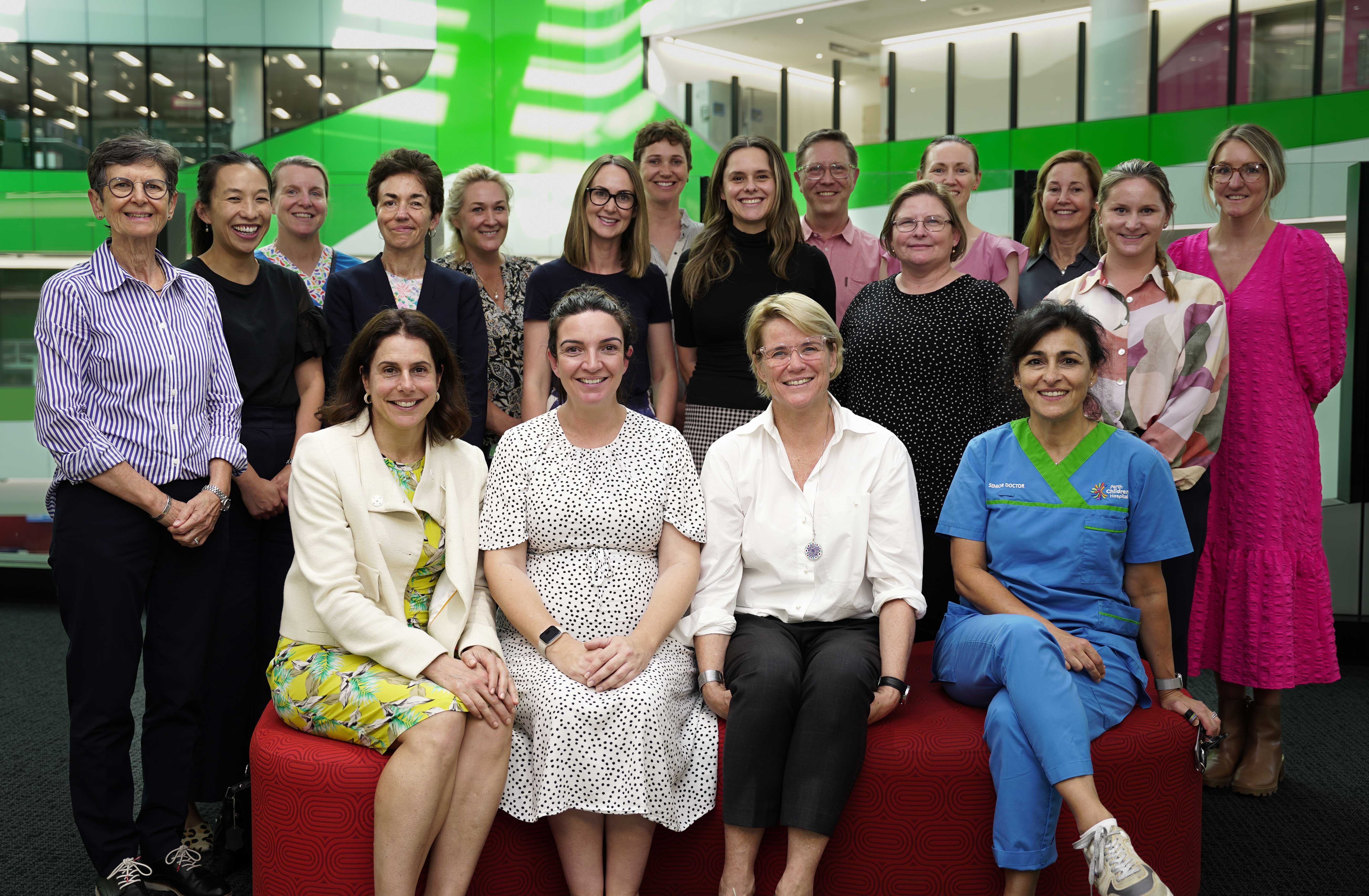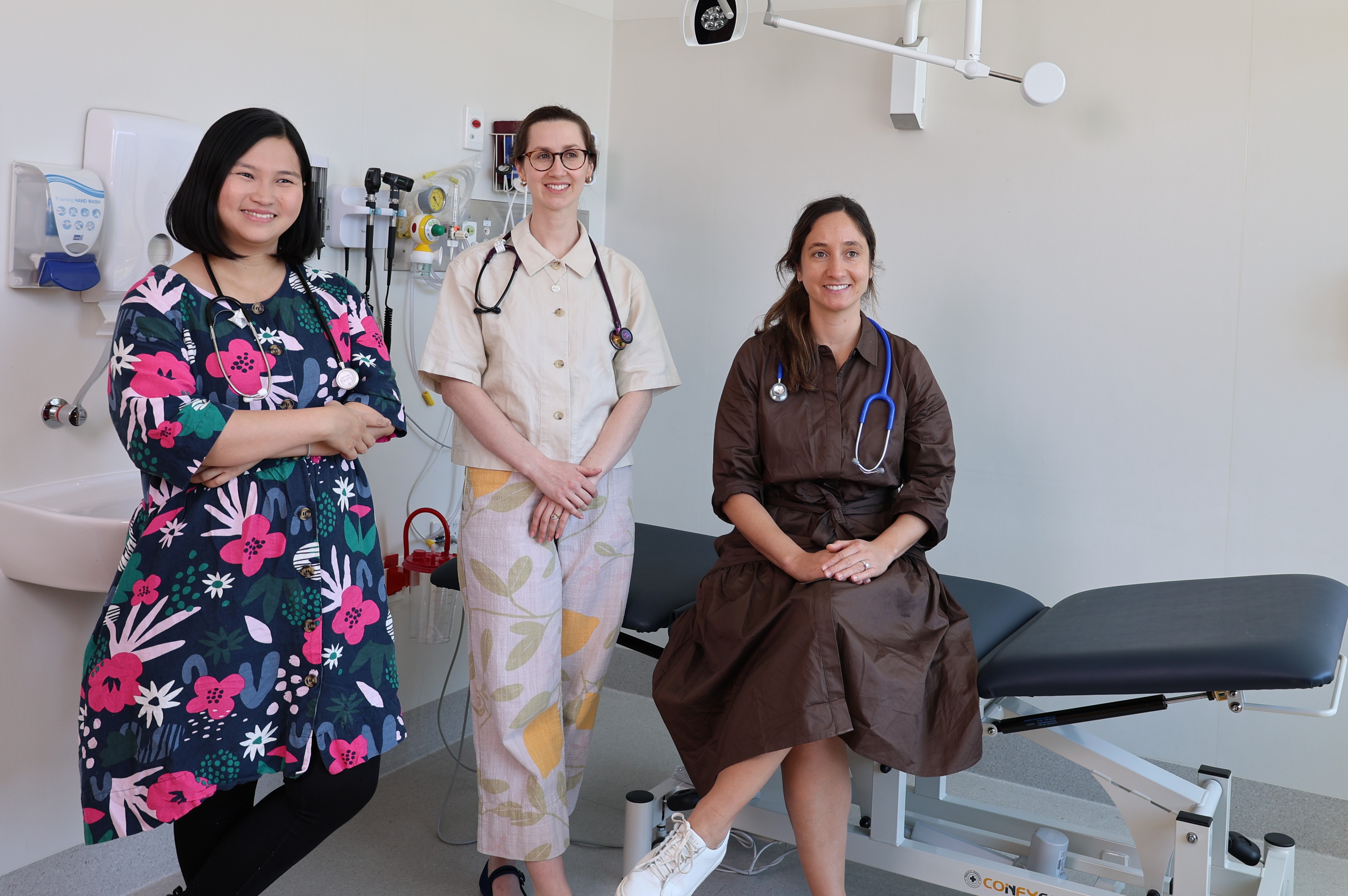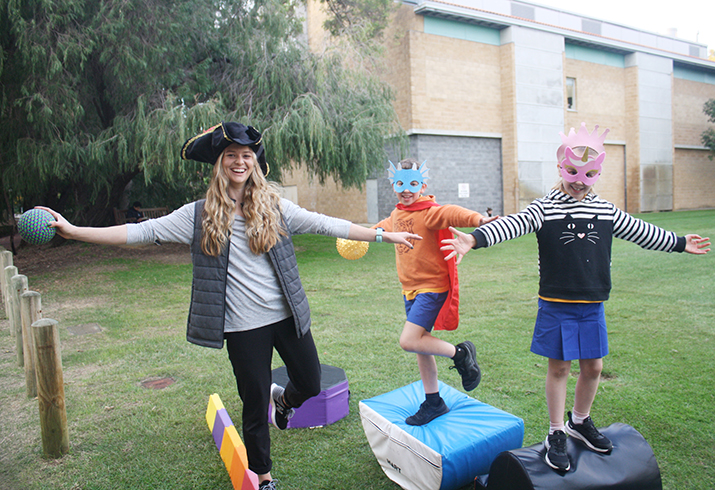Latest News
More News
-
Fit for Play wins fans and boosts confidence for Pathways participants 11 June 2021 A pressure-free physical activity-based program that develops fitness, movement and social skills via such engaging activities as juggling and pirate and spaceship adventure play has been shown to boost confidence in children with mental health disorders and motivate them to lead more active lives. The Fit for Play program – based on the ‘exercise is medicine’ concept - was established by exercise physiologist Kat Fortnum, in collaboration with the University of Western Australia (School of Human Sciences) and Pathways, a specialised Child and Adolescent Mental Health Service (CAMHS) program, as part of her PhD project in 2019. Ms Fortnum set out to cater for the physical activity-based needs of primary-school-aged children with disorders including Post Traumatic Stress Disorder, severe anxiety and Attention deficit hyperactivity disorder (ADHD). Following a six month i...
-
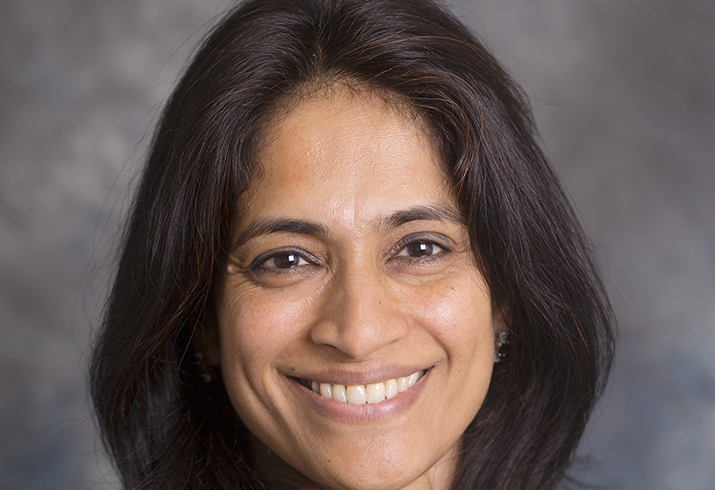 Three questions with Dr Vinutha Shetty 11 June 2021 Dr Vinutha Shetty is an endocrinology consultant at Perth Children’s Hospital (PCH) and lead of the adolescent service within the Endocrinology Department. She is a clinical lecturer with University of WA, a clinical researcher with Telethon Kids Institute and leads the exercise research theme at the Children’s Diabetes Centre, a clinical research team integrated across PCH and the Institute. She has won multiple awards and grants, has published many peer reviewed papers and presented in both national and international conferences included invited speaker engagements. A love of competitive sport in her youth fuelled her interest in exercise research for children and adolescents with type 1 diabetes (T1D) combined with concern around the barriers they faced to exercise. Her recently completed PhD is a series of studies focussing on glucose requirements to prevent hypoglycaemia...
Three questions with Dr Vinutha Shetty 11 June 2021 Dr Vinutha Shetty is an endocrinology consultant at Perth Children’s Hospital (PCH) and lead of the adolescent service within the Endocrinology Department. She is a clinical lecturer with University of WA, a clinical researcher with Telethon Kids Institute and leads the exercise research theme at the Children’s Diabetes Centre, a clinical research team integrated across PCH and the Institute. She has won multiple awards and grants, has published many peer reviewed papers and presented in both national and international conferences included invited speaker engagements. A love of competitive sport in her youth fuelled her interest in exercise research for children and adolescents with type 1 diabetes (T1D) combined with concern around the barriers they faced to exercise. Her recently completed PhD is a series of studies focussing on glucose requirements to prevent hypoglycaemia... -
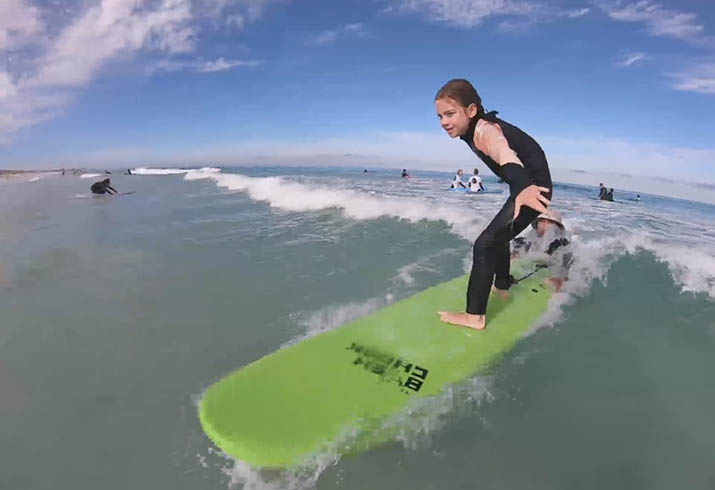 Surfing lessons show promise as therapy for children with chronic conditions 10 June 2021 A Perth Children’s Hospital (PCH) pilot research project has shown promising signs that surfing could prove effective as a therapy for children with chronic conditions. The ‘Blue Healer’ project led by Senior Clinical Psychologist at PCH, Joanna White, is the first of its kind in the world to use surfing as a family-based intervention to improve the lives of patients with cystic fibrosis (CF). The project is based on evidence that children with a chronic condition are known to be at two to three times greater risk of developing a mental health issue than their healthy counterparts. Ms White said the pilot program found overwhelmingly positive benefits for the entire family with improved physical and psychological wellbeing for patients and improved family relationships overall. "We also know supporting these children creates additional burden on families which can lead ...
Surfing lessons show promise as therapy for children with chronic conditions 10 June 2021 A Perth Children’s Hospital (PCH) pilot research project has shown promising signs that surfing could prove effective as a therapy for children with chronic conditions. The ‘Blue Healer’ project led by Senior Clinical Psychologist at PCH, Joanna White, is the first of its kind in the world to use surfing as a family-based intervention to improve the lives of patients with cystic fibrosis (CF). The project is based on evidence that children with a chronic condition are known to be at two to three times greater risk of developing a mental health issue than their healthy counterparts. Ms White said the pilot program found overwhelmingly positive benefits for the entire family with improved physical and psychological wellbeing for patients and improved family relationships overall. "We also know supporting these children creates additional burden on families which can lead ... -
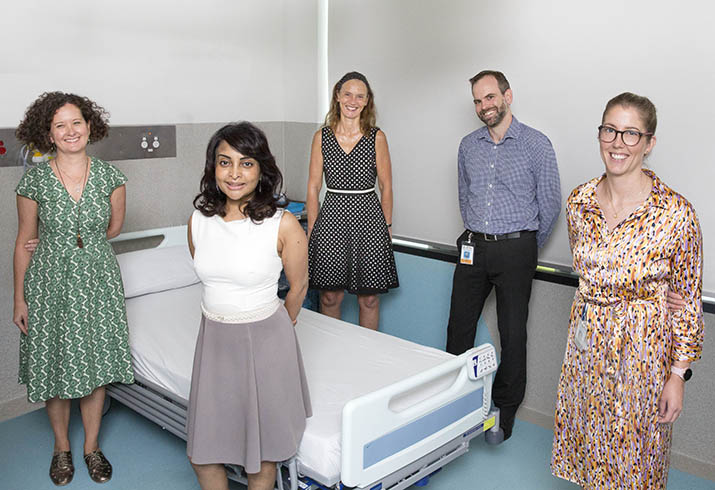 Piecing the paediatric food allergy puzzle together 21 May 2021 Clinical Immunologist at PCH Dr Michael O’Sullivan said the project will collect data to better understand, target and manage food allergies while also expanding an innovative service to support the children and families impacted. “There are a lot of gaps in our knowledge about food allergy in children because the data is not reported in the same way as other diseases,” Dr O’Sullivan said. “While growing allergy rates have led to longer wait times for appointments with allergy specialists at PCH, we also know a lot of these children could be seen and treated sooner by their GP with the support of the PCH allergy service,” Dr O’Sullivan said. The new study funded by a Telethon grant will also expand the successful ‘SmartStartAllergy’ pilot project run in partnership with regional and metropolitan general practitioners (GPs) to improv...
Piecing the paediatric food allergy puzzle together 21 May 2021 Clinical Immunologist at PCH Dr Michael O’Sullivan said the project will collect data to better understand, target and manage food allergies while also expanding an innovative service to support the children and families impacted. “There are a lot of gaps in our knowledge about food allergy in children because the data is not reported in the same way as other diseases,” Dr O’Sullivan said. “While growing allergy rates have led to longer wait times for appointments with allergy specialists at PCH, we also know a lot of these children could be seen and treated sooner by their GP with the support of the PCH allergy service,” Dr O’Sullivan said. The new study funded by a Telethon grant will also expand the successful ‘SmartStartAllergy’ pilot project run in partnership with regional and metropolitan general practitioners (GPs) to improv... -
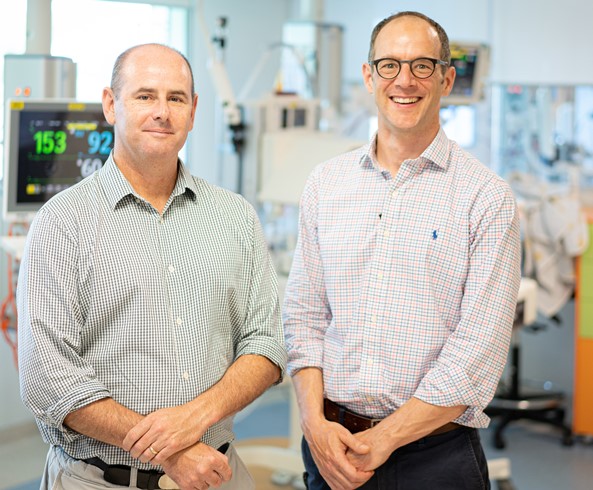 Three questions with one of our leading neonatal researchers Dr Tobias Strunk 20 April 2021 Consultant Neonatologist at King Edward Memorial Hospital, Dr Tobias Strunk is a mid-career researcher who is also a Clinical Professor at the University of WA Medical School and Head of Neonatal and Life Course Health at the Telethon Kids Institute. In partnership with Neonatal Immunologist Dr Andrew Currie, Dr Strunk is leading the Neonatal Infection and Immunity Group, a multidisciplinary group that works across a number of institutions. Their work includes leading several large, international cohort studies and clinical trials that focus on identifying new ways to diagnose, prevent and treat infections in the most vulnerable patients, especially those born preterm. Dr Strunk regularly presents at national and international conferences and has received many awards for his work, including from the European Society for Paediatric Infectious Diseases. He is a member of the Perinatal So...
Three questions with one of our leading neonatal researchers Dr Tobias Strunk 20 April 2021 Consultant Neonatologist at King Edward Memorial Hospital, Dr Tobias Strunk is a mid-career researcher who is also a Clinical Professor at the University of WA Medical School and Head of Neonatal and Life Course Health at the Telethon Kids Institute. In partnership with Neonatal Immunologist Dr Andrew Currie, Dr Strunk is leading the Neonatal Infection and Immunity Group, a multidisciplinary group that works across a number of institutions. Their work includes leading several large, international cohort studies and clinical trials that focus on identifying new ways to diagnose, prevent and treat infections in the most vulnerable patients, especially those born preterm. Dr Strunk regularly presents at national and international conferences and has received many awards for his work, including from the European Society for Paediatric Infectious Diseases. He is a member of the Perinatal So...
Last Updated:
22/06/2021


